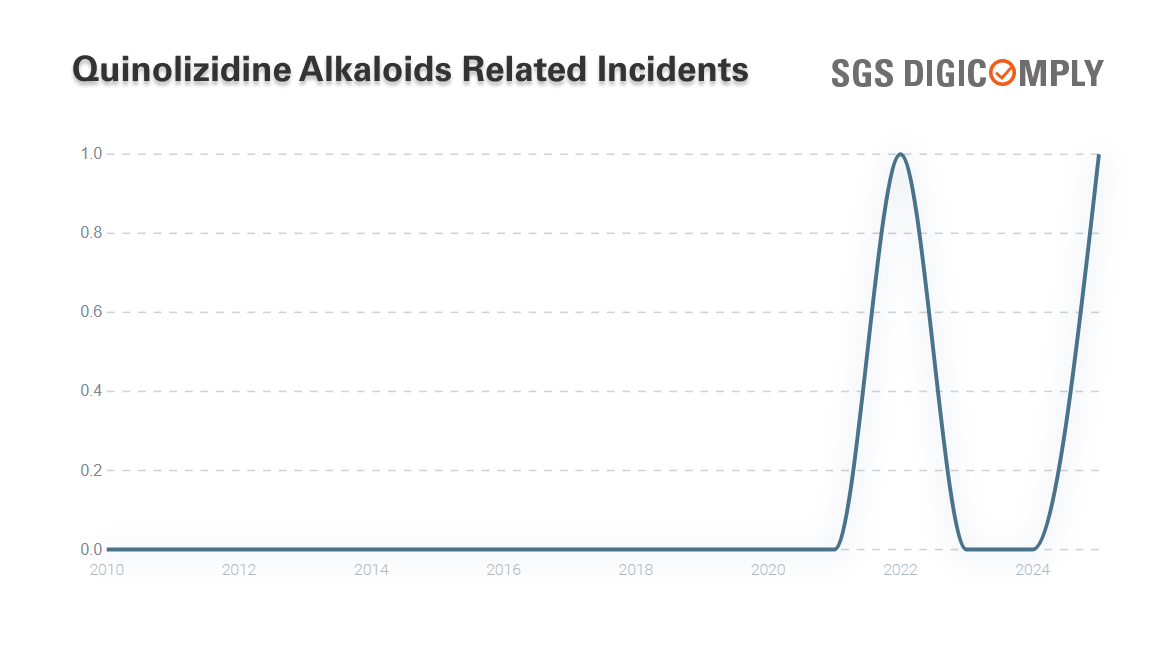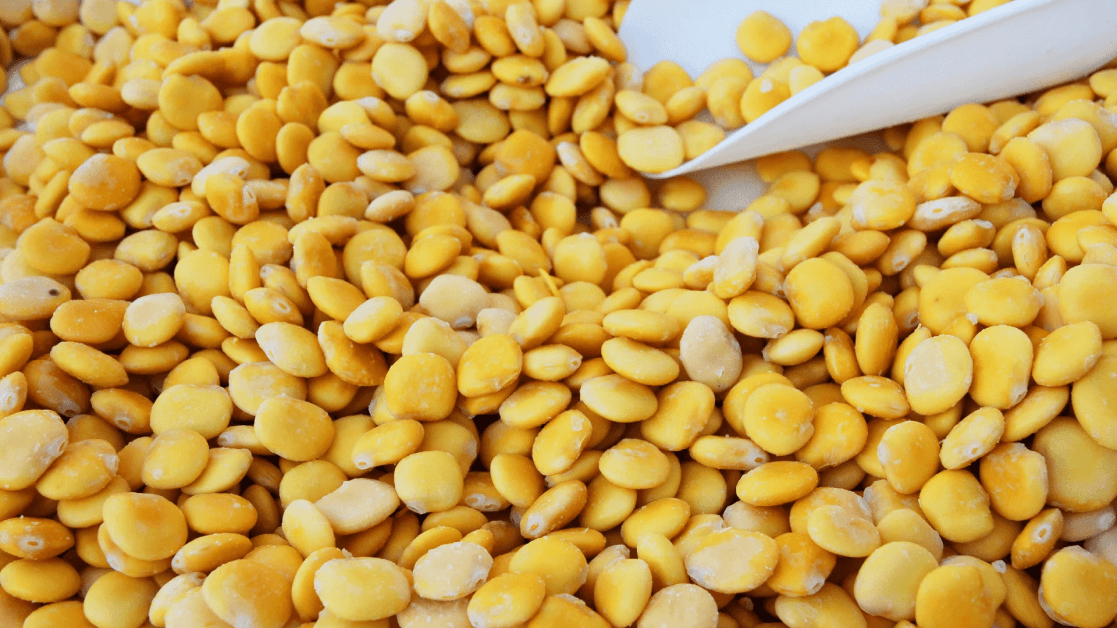A recent alert from the SGS Digicomply Early Warning system has put the spotlight on a significant food safety issue involving quinolizidine alkaloids detected in lupine seeds from Lebanon. This notification, logged on February 5, 2024, by Germany, marks a notable instance in the monitoring of food contaminants within the European Union.

Feel free to get in touch now to learn about implementing the Food Safety Intelligence Hub for your company.
Incident Overview
Germany reported the presence of quinolizidine alkaloids, specifically lupanine and sparteine, in sour lupine seeds imported from Lebanon. The detection was made through official market controls, and the notification has been validated by the European Commission.
Key Incident Details
- Notification Date: February 5, 2024
- Notifying Country: Germany
- Product Involved: Lupine seeds sour
- Origin: Lebanon
- Risk Decision: Classified as serious
- Alkaloid Levels: Analytical testing revealed a total quinolizidine alkaloid content of 22,283 mg/kg, with 15,940 mg/kg attributed to lupanine and 76.9 mg/kg to sparteine.
Actions Taken
In response to the findings, Germany has taken preventive measures including:
- Withdrawal: The affected lupine seeds have been withdrawn from recipients.
- Monitoring: Ongoing monitoring of the recall/withdrawal process to ensure the contaminated product is contained.
Context and Significance
This incident is particularly significant as it represents one of the few instances where quinolizidine alkaloids have been detected in food products within the EU. Prior to this, there was only one notable report in 2021 concerning these alkaloids in Denmark, related to organic sweet lupines used for sow feed, which did not result in the identification of immediate hazards.
Quinolizidine alkaloids are natural toxins that can pose serious health risks if consumed in significant quantities. The actions taken by Germany highlight the importance of swift and effective measures to protect public health.
Conclusion
The detection of quinolizidine alkaloids in lupine seeds from Lebanon serves as a critical reminder of the ongoing need for vigilance and robust food safety monitoring systems. As the situation is managed and further measures are taken, the incident underscores the importance of international cooperation and swift action in the face of potential food safety threats.





.webp?width=1644&height=1254&name=Food%20Safety%20Dashboard%201%20(1).webp)
